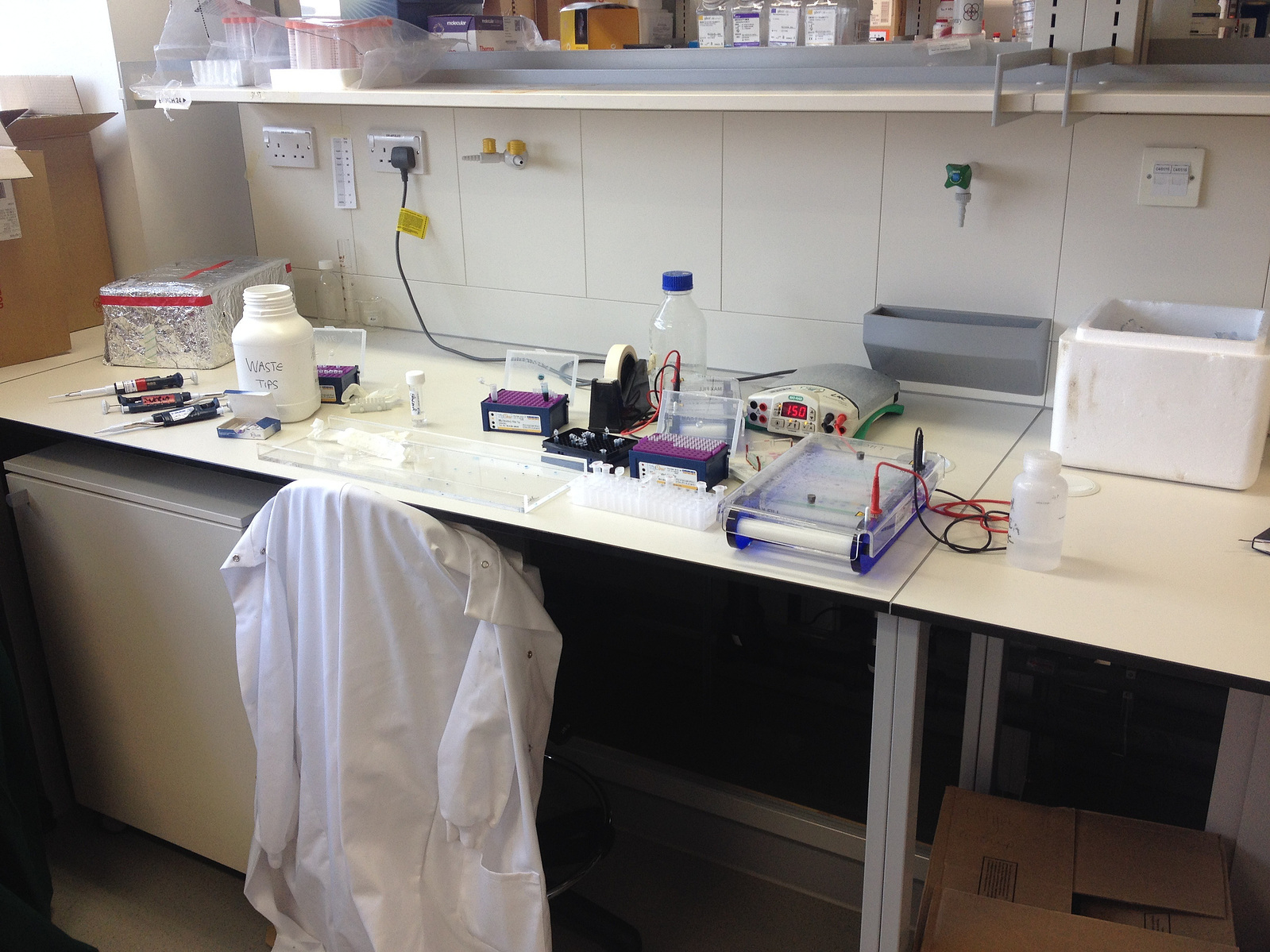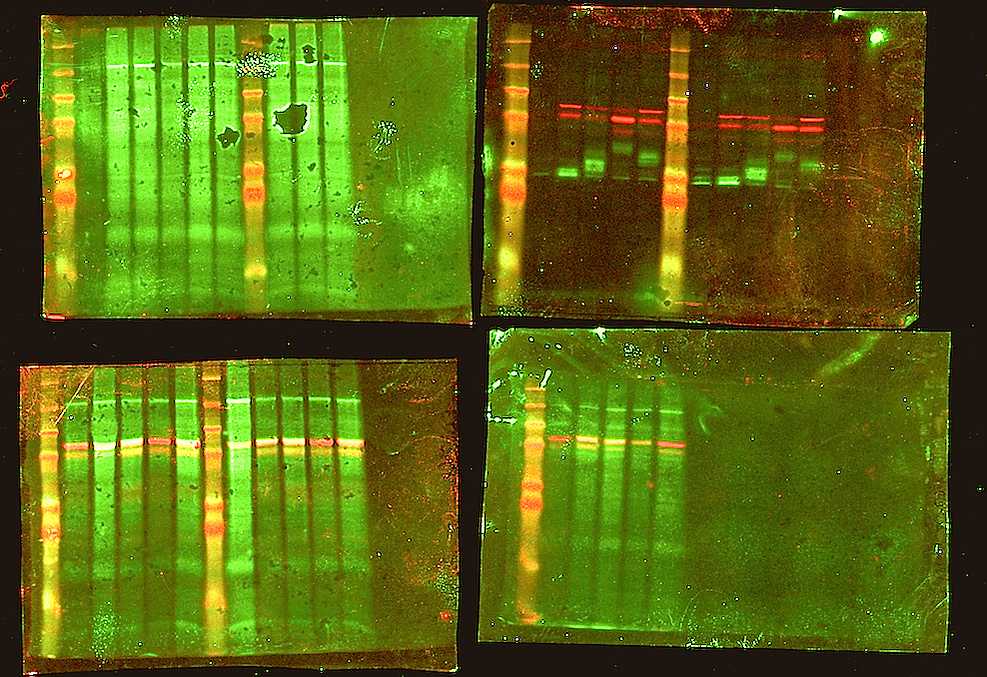





DNA Tartan
Examining the relationship between genes and tartan passing down the generations in the bloodline.
Huntington disease is an inherited condition that affects the brain and nervous system. The number of CAG repeats (cytosine, adenine, guanine) in the genetic defect on chromosome 4 determines whether or not someone will develop Huntington's disease during their lifetime.
If one parent carries the gene, there is 50:50 chance that children will develop HD during their lifetime. As the gene is passed down through families, the number of CAG repeats gradually increases with a greater chance of developing symptoms at an earlier age.
A genetic test assesses the repeat length through gel electrophoresis. DNA fragments are counted indicating the number of repeats, encoding the family HD information in the tartan thread count.
<26 CAG NormalNot affectedNone
27–35IntermediateNot affected <50%
36–39Reduced PenetranceMay be affected50%
40+ CAGFull PenetranceAffected50%
Micro Residency:
ASCUS & Biomedical Sciences, Strathclyde University.